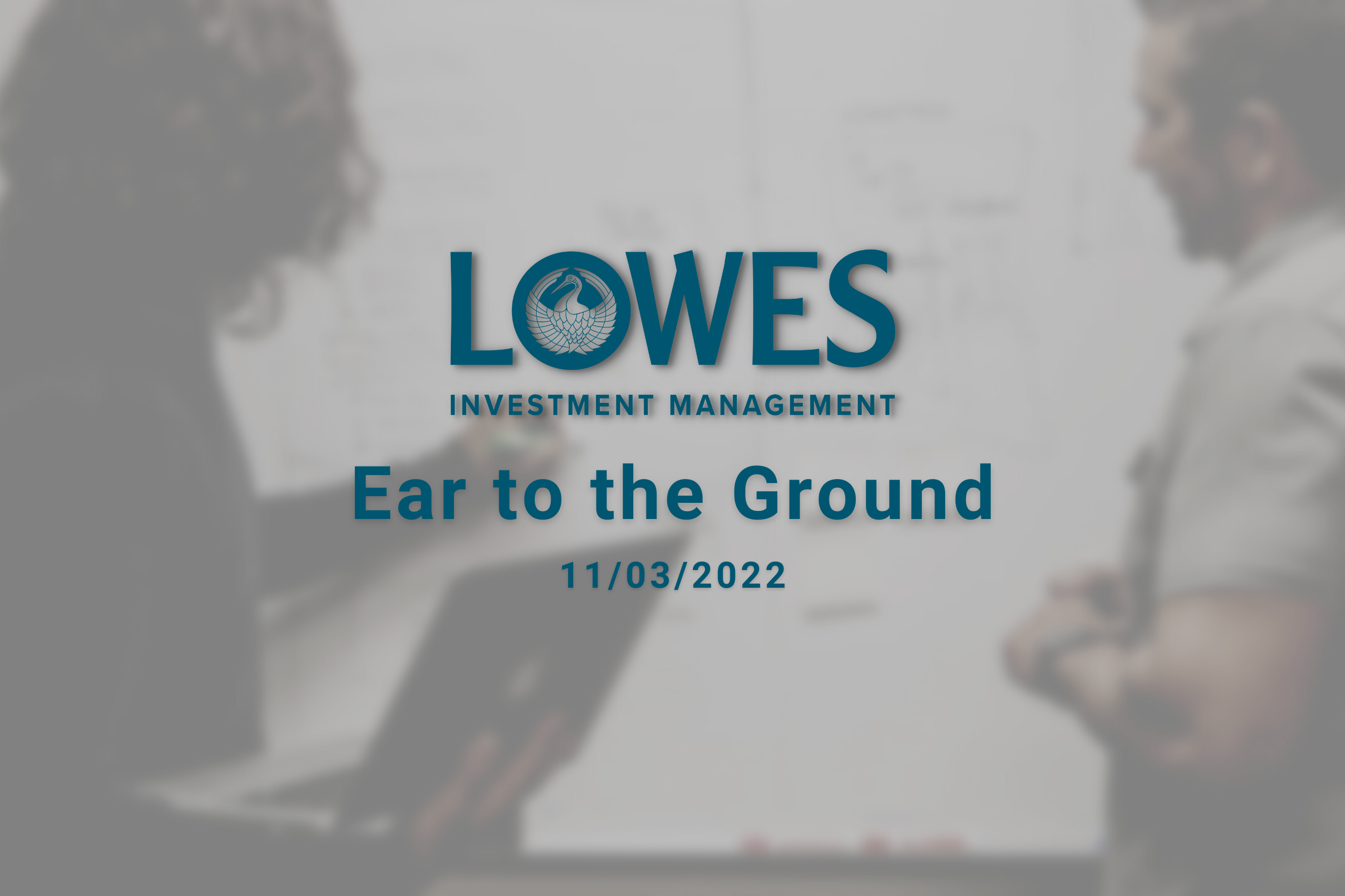Ear to the ground
11 March 2022

The conflict between the Ukraine and Russia continued to take centre stage this week. With no sign of de-escalation, countries and companies continue to try and exert pressure on Russia in whichever way they can. Countries around the world continue to increase trade sanctions on Russia whilst companies are showing their support for the Ukraine with their feet. We have seen more companies pull out of suspend their businesses in the country, including Goldman Sachs, JP Morgan, McDonald’s and Coca Cola, to name but a few.
The threat of sanctions has been two way however, with Russia threatening to stop the export of commodities and raw materials. This has led to some high profile spikes in commodities, none more so than nickel. The sharp rise was so severe that it caused trading on the London Metal Exchange to be halted. This was compounded by investors holding short positions in the metal and were forced to cover these. Perhaps not just to do with the demand for the commodity therefore, used for example in stainless steel and electric vehicle batteries, but also due to the ability to invest in commodities such as this whilst never having the intention of taking delivery. The suspension still remains in place.
Food prices also continue to see sharp rises, especially given the level which Russia and the Ukraine feed into the wheat and fertiliser markets globally. Whilst we are seeing price rises across the world, it is particularly important to view prices for food which are being paid in emerging markets, given the larger share of income which food takes in this region. According to figures from Datastream, Food and Agriculture Organisation (FAO) food prices in emerging market currencies is now significantly above where there were during the 2011 Arab Spring. The peak of 2011 has now also been surpassed in US dollar terms. One hopes that this does not lead to the same unrest which we saw then, but authorities are no doubt taking notice.
It is not just the emerging markets however where higher inflation is biting. Latest research from the Institute for Fiscal Studies suggests that net real incomes here in the UK will also take a hit across all of the earnings cohorts, a function of higher inflation and income tax and national insurance contribution hikes.
Markets are now starting to believe that inflation will be higher for longer. The US dollar inflation swap, 5 year, 5 year forward, now stands at over 2.7% which is the highest level seen since 2014, although it still has some way to go before it reaches the heights seen in 2008 and 2009 where it was above 3.5%.
In the US meanwhile we saw inflation to February reported this week, coming in at 7.9%, the highest figure since January 1982. This figure was in line with expectations, with energy costs and gasoline prices being the two largest contributors. Higher inflation is now something which the ECB are recognising. At their meeting yesterday they released forecasts which now show inflation for the Euro area of 5.1% for 2022, way ahead of previous estimates of 3.2%. There was also an uplift to the 2023 inflation forecast from 1.8% to 2.1%. They forecast growth going the opposite way however, forecasting 3.7% for 2022 against the previous estimate of 4.2%, inflation in an uptrend therefore whilst growth is in a downtrend, although we are keen to point out that the economy is still growing.
Eyes remain focussed on central banks for the potential of a policy mistake.
This article is for information purposes only and should not be construed as advice. We strongly suggest you seek independent financial advice prior to taking any course of action.
The value of this investment can fall as well as rise and investors may get back less than they originally invested. Past performance is not necessarily a guide to future performance. The Fund is suitable for investors who are seeking to achieve long term capital growth.
The tax treatment of investments depends on the individual circumstances of each client and may be subject to change in the future. The above is in relation to a UK domiciled investor only and would be different for those domiciled outside the UK. We strongly suggest you seek independent tax advice prior to taking any course of action.
Subscribe Today
To receive exclusive fund notifications straight into your inbox, please complete this form.